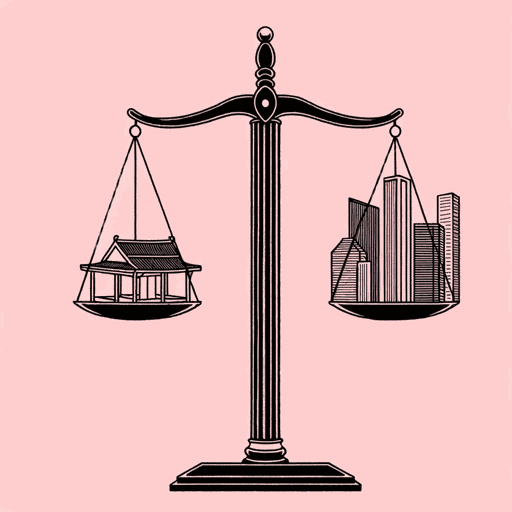52 pages • 1 hour read
Ha-Joon Chang23 Things they don't tell you about Capitalism
Nonfiction | Book | Adult | Published in 2010A modern alternative to SparkNotes and CliffsNotes, SuperSummary offers high-quality Study Guides with detailed chapter summaries and analysis of major themes, characters, and more.
ConclusionChapter Summaries & Analyses
Conclusion Summary: “How to Rebuild the World Economy”
Clarifying that he doesn’t oppose capitalism itself but rather the unfettered, corporate-controlled capitalism of the recent past, Chang offers several principles to assist in a “total re-envisioning of the way we organize our economy and society” (252). Any new system must consider the limits of human rationality while recognizing that people are not motivated solely by self-interest. Instead of assuming that market outcomes are automatically just, economies should account for structural factors that limit individual achievement. Rather than relying primarily on knowledge and service industries, economies (particularly developing ones) should refocus on manufacturing. Financial assets, meanwhile, should be balanced with real sector activities to prevent instability. In all of these areas, the government should be an active participant. Global governing bodies should allow and encourage developing countries to implement the most helpful policies. Following these principles, Chang insists, can alleviate suffering and help economies avoid repeating the mistakes of the past.
Conclusion Analysis
In his conclusion, Chang turns his attention from busting myths to a more prescriptive approach, bringing all three of the book’s themes—Deconstructing Free-Market Economics Dogma, The Path Forward for Developing Countries, and Learning from the 2008 Financial Crisis—to a resolution by outlining changes to help capitalist economies thrive and protect them from failure.
Featured Collections
Books on Justice & Injustice
View Collection
Business & Economics
View Collection
Contemporary Books on Social Justice
View Collection
Equality
View Collection
Globalization
View Collection
Immigrants & Refugees
View Collection
Memorial Day Reads
View Collection
Military Reads
View Collection
Nation & Nationalism
View Collection
Politics & Government
View Collection
Popular Book Club Picks
View Collection
Poverty & Homelessness
View Collection
Sociology
View Collection

